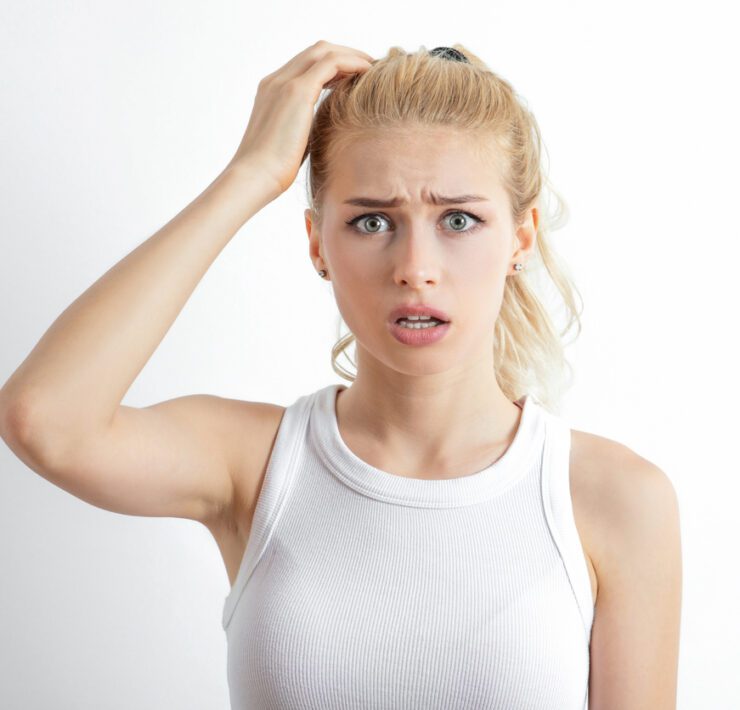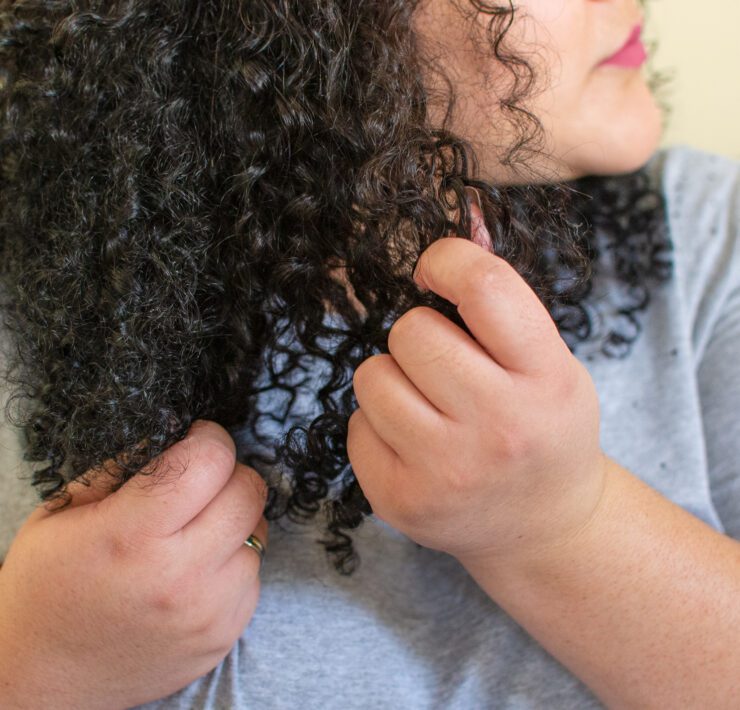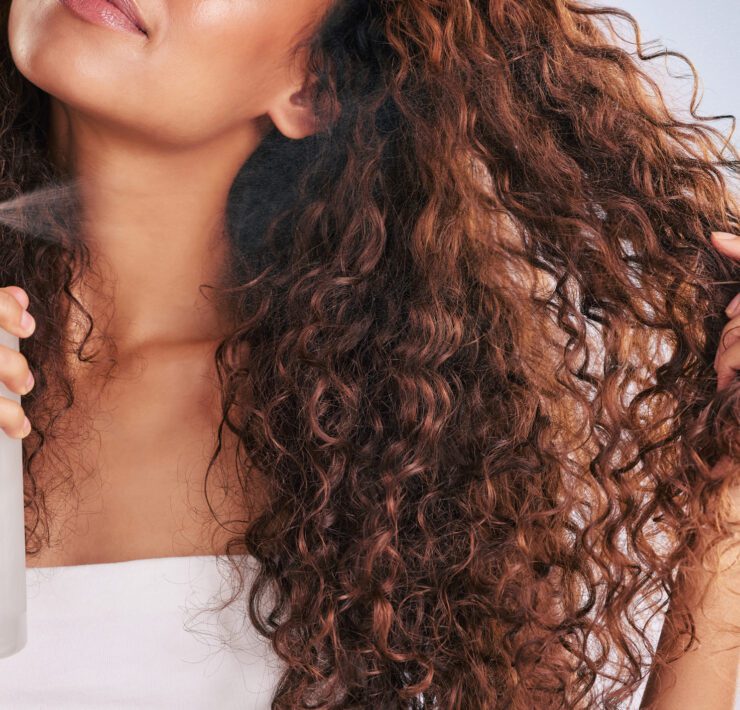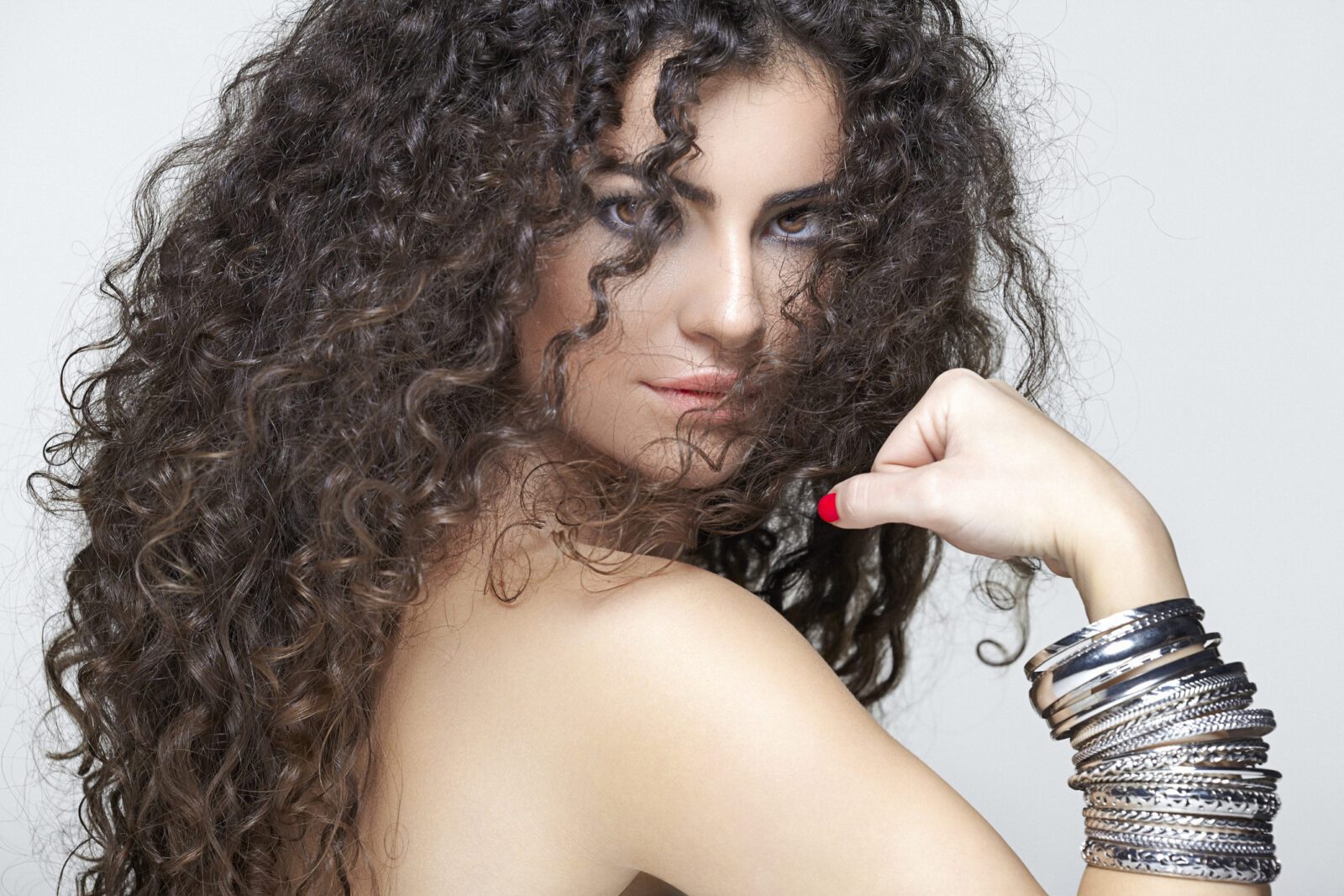
Vitamin B5 is one of eight different vitamins in the B group, each of which plays an essential role in keeping the body healthy. B5 is specialized in helping the body produce blood cells, convert food into energy, and maintain healthy skin—but that’s not all. If you want shinier, thicker, healthier hair—and who doesn’t?—vitamin B5 offers a safe and natural solution.
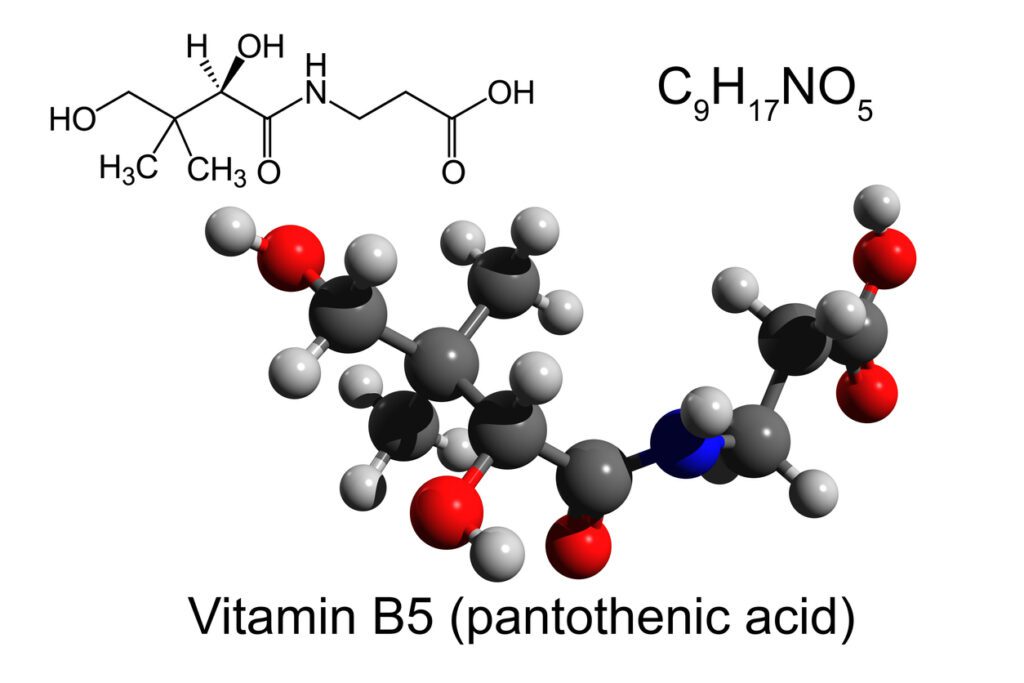
How Does Vitamin B5 Help Hair?
Vitamin B5, also known as pantothenic acid, strengthens and nourishes the hair follicles to promote healthy hair growth and prevent hair loss. At the same time, B5 penetrates lower skin layers, improving scalp health and reducing dandruff.
Did you know hair requires moisture to thrive? Healthy hydration helps prevent hair breakage and split ends. By penetrating the hair shaft, vitamin B5 acts as a humectant. It supports moisture retention, making hair appear thicker and more elastic while resisting damage from heat, sun exposure, and damaging styling products. Improved elasticity is also excellent for defined, bouncy curls.
In addition to its numerous health benefits, pantothenic acid gives hair greater volume, softness, and shine without added oils or greasiness.
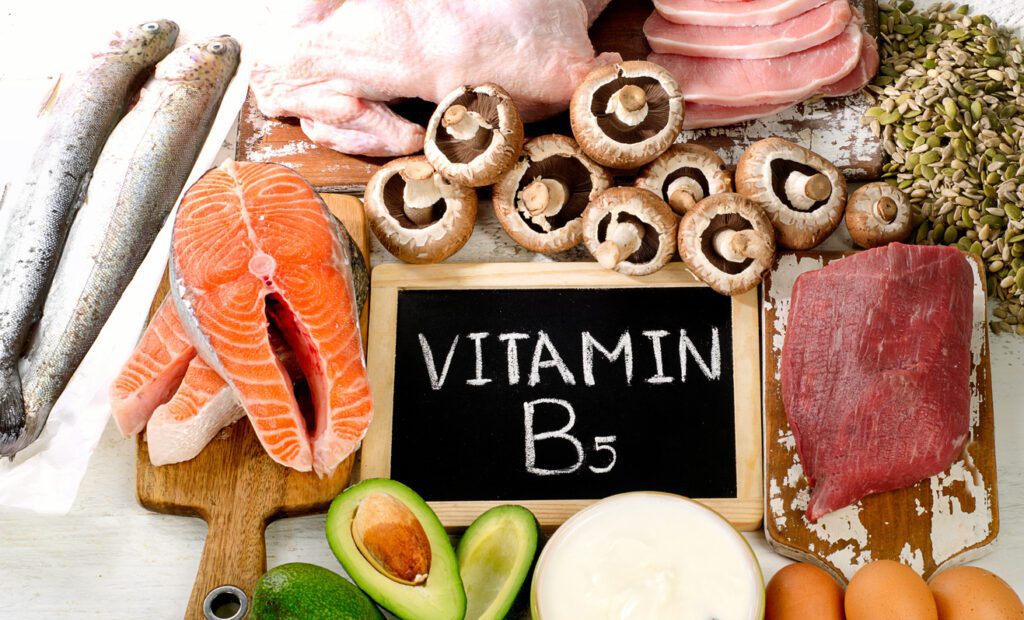
Top Sources of Vitamin B5
It’s easy to obtain sufficient amounts of vitamin B5. You may find it listed as an ingredient in your shampoo, conditioner, hair coloring, curl care, or other hair care products. It may appear under another name, such as dexpanthenol, butanamide, or alcohol analog of pantothenic acid. Many common foods are good sources of pantothenic acid, including:
- Avocados
- Beef
- Broccoli
- Brown rice
- Chicken breasts
- Eggs
- Fish
- Legumes
- Liver
- Milk
- Mushrooms
- Nuts
- Potatoes
- Yogurt
In addition, many cereals are fortified with vitamin B5.
Keep in mind that processing removes much of the vitamin B5 from foods. To ensure you receive the highest amount of vitamin B5, opt for fresh foods rather than canned or frozen foods whenever possible.
Vitamin B5 Deficiency
Vitamin B5 deficiency is uncommon but can happen. Unsurprisingly, hair loss is one of the primary symptoms of vitamin B5 deficiency. In addition, lack of hair growth, skin irritations, difficulty sleeping, and burning sensations in the feet can all be signs of vitamin B5 deficiency. Some people deficient in vitamin B5 may suffer from abdominal pain or depression.
Vitamin B5 Supplementation
Most people receive adequate vitamin B5 by consuming a healthy diet, but if you suspect your intake is low, a B-complex supplement can help. The daily amount of vitamin B5 recommended by experts is 5 mg for those aged 19 and up, 6 mg for pregnant women, and 7 mg for breastfeeding women.
Like all B vitamins, B5 is water soluble. That means the body does not store it but needs constant replenishment. Take vitamin B5 supplements after a meal, with water.
Ask your doctor about taking vitamin B5 supplements if you are prescribed the antibiotic tetracycline, as B vitamins can affect the drug’s absorption. Your healthcare provider may recommend taking the supplement at a different time than the antibiotic.
Using Vitamin B5 Topically
One of the most significant advantages of using vitamin B5 for healthy hair is that its benefits are available internally or externally. When used topically via shampoos and conditioners, vitamin B5 (or panthenol in this formulation) aids in repairing damaged hair, and its anti-inflammatory properties soothe dry, itchy scalps.
While any hair benefits from vitamin B5, de-moisturized hair gains the most significant advantage. Vitamin B5 can enhance hair texture, making it appear thicker and more voluminous. Pantothenic acid makes imperfections smoother and less noticeable by coating the hair shaft. Hair spray featuring vitamin B5 can also cause hair to appear thicker and shinier. As another plus, there are no contraindications for using panthenol with other products.
For best results, choose shampoos and conditioners that list panthenol high on the ingredient formulation list. If it’s listed too far down, look for other options after ingredients, such as dimethicone or cyclomethicone.
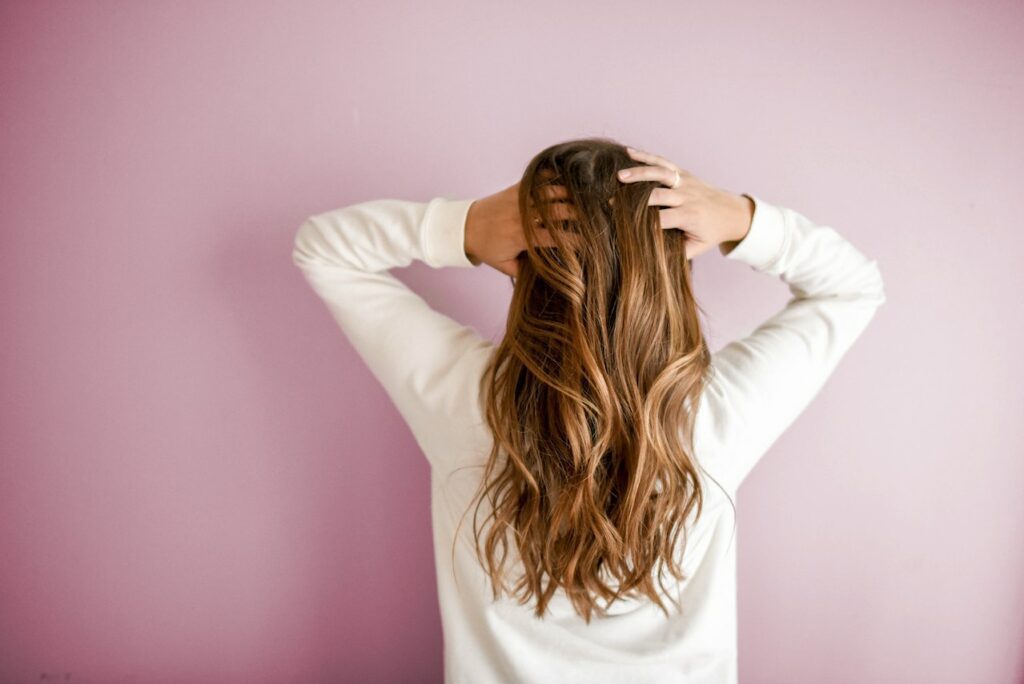
Thinning Hair
All sorts of conditions lead to thinning hair. Both men and women can suffer from hereditary hair loss, and most people experience some hair loss with age. After childbirth, many women find themselves dealing with temporary hair loss.
While thinning hair is not always preventable—there’s nothing you can do about your genes—incorporating vitamin B5 into your health and hair care routine can alleviate thinning hair to some degree.
Damaged Hair
Using blow dryers or other heat tools can harm hair over time. Heat causes hair to become brittle and dry. Vitamin B5 can help repair this damage, leaving your hair thicker and more vibrant. The same holds true for hair subject to chemical treatments.
Polluted environments also contribute to hair damage. The humectant (moisture-retaining) properties of vitamin B5 form the equivalent of a thin shield over your hair that can prevent atmospheric pollutants from staying on your tresses and causing damage.
Vitamin B5 IV Therapy
Intravenous therapy treatments are another safe and effective way to get more vitamin B5 for your hair. A highly concentrated vitamin B5 booster delivered via IV drip therapy can help strengthen hair follicles, boost nail health, and reduce skin inflammation related to acne and other dermal concerns. Vitamin B5 is a good option for a quick and effective method to promote your hair health.
Healthy Hair
Because vitamin B5 is crucial to maintaining bodily health, you can’t have healthy hair without it. Healthy hair reflects healthy skin and an excellent immune system. Maintaining appropriate levels of pantothenic acid in your system can help you look and feel your best.
Vitamin B5 can help make your hair your best feature. Whether you prefer to obtain vitamin B5 from food, supplements, shampoo, or IV drip therapy, you can look forward to healthier, softer, more vibrant hair.
Take our Hair Quiz to figure out your hair characteristics.
And try our 2 week Trial Membership!



